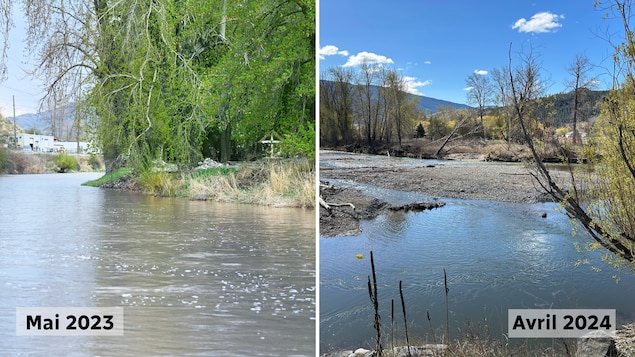Thousands more have been warned to prepare to leave their homes at any moment, while the number of fires sparked by strong winds has risen to 110. “We have declared a state of emergency” in the province to ensure “safety, health and wellness.” “To be an Albertan,” Alberta Premier Danielle Smith told a news conference following a meeting of her government’s Emergency Management Committee.
He noted earlier that this Canadian province, which is one of the largest oil-producing regions, “is witnessing a dry and hot spring, and with so much wood, a few sparks are enough to start some really terrifying forest fires.” “These circumstances have led to an unprecedented situation that our county faces today.” Smith said about 122,000 hectares have burned so far.
He said declaring an emergency would give the Alberta government “greater powers to respond to extreme situations,” including mobilizing additional resources and opening emergency funds. Nearly all of Alberta and much of the neighboring province of Saskatchewan, as well as a wide swath of the Northwest Territories, face extreme fire risks, according to the federal government’s fire risk map.
Federal Emergency Preparedness Minister Bill Blair tweeted that Ottawa stands ready to provide federal assistance if needed. The oil sands facilities have been watching the risks closely, but none have reported interruptions in their production.
Drayton Valley, which has a population of 7,000 and is about 140 kilometers west of Edmonton, was among the communities evacuated as firefighters battled a massive blaze. About 550 kilometers north of the county capital, a serious fire has gutted 20 homes, a general store and a police station in the community of Fox Lake. Residents were evacuated by boat and helicopter.
Residents of the city of Edson, with a population of over 8,000, were also ordered to “immediately evacuate”. In recent years, western Canada has repeatedly experienced extreme weather events, the intensity and frequency of which have increased due to global warming.





